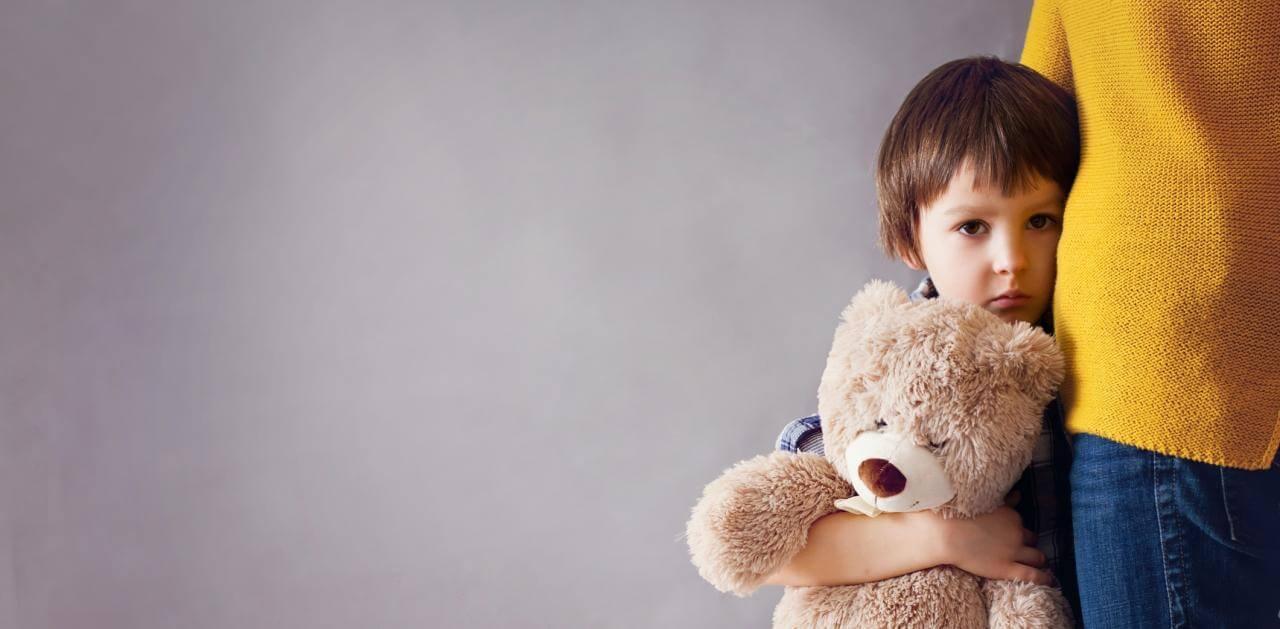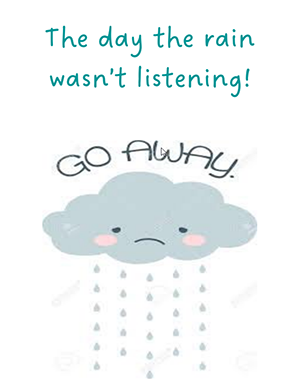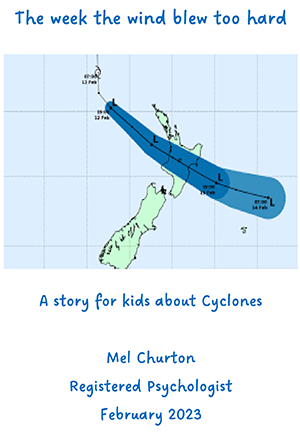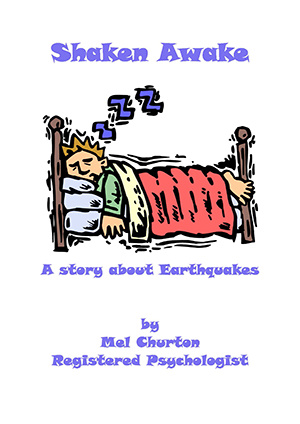Trauma - How To Talk To Your Kids About It
Trauma - How To Talk To Your Kids About It
Children think deeply about things, but might not always have the words or skills to describe how they are feeling following a traumatic event (including natural disasters like flooding and earthquakes). Find out how you can help them and discover some resources about how to talk to kids about trauma. Updated with resources to support tamariki through flooding and cyclones.
What is a traumatic event?
A traumatic event is when something happens that is very traumatic.
Some examples include:
- being in an accident
- someone dying
- being hurt by someone
- terrorist attack
- natural disasters, such as an earthquake or flooding
Check some resources on supporting children after a flood
Check some resources on supporting children before and after cyclones
Check a resource on supporting children after an earthquake
How do I talk to my child after a traumatic event?
Children may not respond in the way parents or caregivers expect
Children may not respond to trauma in a way that a parent or caregiver may expect. For example, their response may be delayed - it can sometimes take months for things to build up and for parents, caregivers or teachers to realise they are having problems and need help.
Tamariki might not always know the words to say how they are feeling
Tamariki think deeply about things, but might not always know the words to say how they are feeling. If they don't have all the facts or are struggling to say in words how they feel, they might use their imagination to fill the gaps and express their feelings through behaviours - being withdrawn, sulking, being naughty, tantrums, refusing to go to school and so on.
Sometimes this results in misunderstandings where what they imagine is more frightening than what happened.
Also, as they get more information or more understanding of a traumatic event, they may become upset after seeming to be OK for some time.
Some things to think about when talking to your child after a traumatic experience
Don't assume your child's understanding about what happened is the same as your own. Find out by talking to them, listening to them and watching how they behave.
Children's understanding is often limited, they might only remember parts of what happened and they can sometimes imagine things that didn't happen.
Parents can help their children by sorting out their own reactions and feelings.
It's important to reassure your child, but reassuring them won't help until they know what happened and any misunderstandings have been cleared up.
How can I help my child feel better?
Giving your children lots of love will help, but there are lots of things you can do to help them feel better:
Talk with them
Talk openly with your child and remind them the traumatic event is over and they are safe. Talk with them about how they are feeling and let them know it's OK to feel scared, worried or sad. Let them know it's OK to ask you questions, and answer their questions the best you can using words they understand.
Be kind and patient
Be understanding about how your child is feeling. They may have trouble sleeping or be 'naughty'. While it might be hard for you that they are doing these things it's important you give them the time they need to feel better.
Let them know they are not alone
Remind your child other children are feeling similar things and one day they will start to feel better. Share that you are upset too, but you know that you will all be fine together.
Keep up routines
Try to keep to your routines, doing things you usually would do - meal times, bed times and going to school.
Things not to do
There are some things you shouldn't do following a traumatic experience:
- don't talk too much about what happened at the traumatic event
- try not to tell them 'do not worry' or 'do not cry' - children need to know it's OK to feel like they do
- don't be over-protective
Some resources to help support children after a traumatic event
Resources on supporting children after a flood
The day the rain wasn't listening (PDF, 317KB)
This resource was created by Mel Churton in January 2023 after heavy rain and flooding. It may be helpful for children returning to school who may not know what to do with big or confusing feelings. Storytelling and talking about things helps.
Supporting your child after a flood (Emerging Minds, Australia)
If your family has just been through a flood, and maybe not for the first time, you may be worried about the potential mental health impacts on your child or children. If you feel a bit overwhelmed and unsure, you’re not alone. This resource aims to provide advice on how to support yourself and your family during this difficult time.
The information at this website is general and helpful for anyone. But, any support lines listed are only available in Australia.
Post-flood worries: Help your child manage anxiety (Life Skills 4 Kids, Australia)
After a flood, many families will take time to recover. This will depend partly on the level of trauma a family suffered during the actual event, and how quickly life can return to normal after the event.
For people who had to evacuate their homes, those whose homes were destroyed, or those who lost significant possessions or family pets, the process will be longer.
The information on this website is general and helpful for anyone. But, any support lines listed are only available in Australia.
Severe weather - what support is available and where you can get help
For the latest information about general support available in New Zealand, see the website of the National Emergency Management Agency | Te Rākau Whakamarumaru.
A resource on cyclones
The week the wind blew too hard (PDF, 289KB)
This is a story for kids about cyclones. It was created by Mel Churton in February 2023 as Cyclone Gabrielle hit Aotearoa. At the end of the story, there are suggestions for dealing with worry related to extreme events. There is also a list of further resources, and activities for children to do.
A video - Cyclone Gabrielle: Recovery advice for parents (oVRcome)
A clinical psychologist provides some advice for parents of children affected by Cyclone Gabrielle
See the transcript at the oVRcome website.
Resource on supporting children after an earthquake
Shaken awake (PDF, 1.1MB)
This is a story about earthquakes for children. It was created by Mel Churton, a registered psychologist in New Zealand. Mel also includes information for parents and eduators at the end of the resource.
The Conversation - how to talk to children about terrorism
When a child has directly experienced extremely distressing events, or witnessed them through the news and social media, it is entirely normal for them to experience much higher levels of distress than usual. Read an article from academics about how to talk to children about terrorism.
Save The Children's 10 tips for helping children cope with disaster
After a disaster, parents, teachers and caregivers look for advice on how to help children cope with the after-effects. These 10 tips from Save the Children's emergency response experts can ensure that children get the support they need - well after the disaster is over. Read more ...
Sparklers website
You could try Sparklers at home. There are fun wellbeing activities to support whānau and their tamariki to look after their wellbeing and feel good. Sparklers is backed by both science, NZ research and wellbeing specialists.
Triple P Parenting - recovering after natural disasters means dealing with emotions too
Check Triple P Parenting's page on natural disasters. Natural disasters can significantly disrupt our routine. Lack of routine in life can cause anxiety and stress for the whole family. It may not be possible to re-establish exactly the same routine as the one before the disaster, but establishing a predictable routine for children helps them relax and feel safe and confident about the future.
AllRight? website
All Right? is a collaboration between Canterbury DHB and the Mental Health Foundation of New Zealand. It was launched following the Canterbury earthquakes but has resources and information on wellbeing which could be of use to anyone going through a hard time.
Need to talk? Free call or text 1737 any time in NZ
If over the following days and weeks following a traumatic event, distress or stress symptoms are increasing, or your child feels they are not coping, seek help early. Professional support is important. Your family doctor is a good starting point, or for support with grief, anxiety, distress or mental wellbeing, you can call or text 1737 - free, anytime, 24 hours a day, 7 days a week - to talk it through with a trained counsellor.
See more KidsHealth content on emotional and mental wellbeing
Read about how to cope after a natural disaster
See the KidsHealth's section on emotional and mental wellbeing
This page last reviewed 18 April 2022.
Do you have any feedback for KidsHealth?
If you have any feedback about the KidsHealth website, or have a suggestion for new content, please get in touch with us.
Email us now





